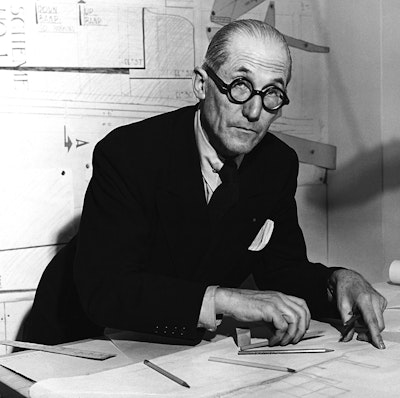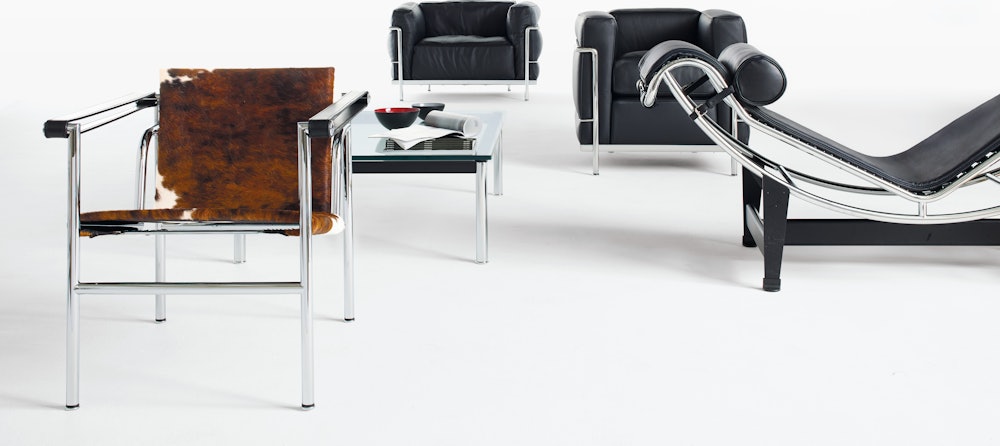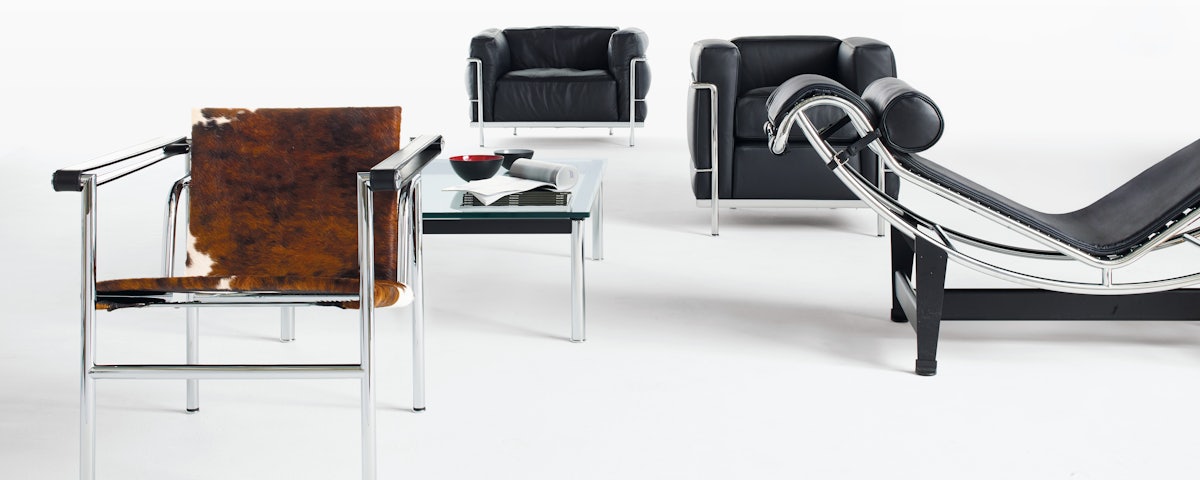Product Summary
Shipping + Delivery
Easy Returns
Not satisfied? Return items within 30 days. Learn More
Design Concierge
Need help designing your space? Learn more about our complimentary interior design services
Authenticity Guaranteed
This is an original, authenticated product.
Warranty
2-year warranty (terms and conditions may vary)
Details
- Midcentury functional elegance.
- Tilting backrest moves with the body.
- Choose from black saddle leather or cowhide.
- Brand
- Cassina
- General Dimensions
-
- 25⅝" H 23¼" W 25⅝" D
- Assembly
- Comes fully assembled
- Warranty
- 2-year warranty (terms and conditions may vary)
LC1 Sling Chair
- Height (in): 25⅝
- Width (in): 23¼
- Depth (in): 25⅝
- Weight (lbs): 22
- Seat Height (in): 15¾
- Seat Width (in): 19⅜
- Seat Depth (in): 15⅜
- Arm Height (in): 22⅞
- Polished trivalent chrome-plated steel frame
- Black saddle leather or cowhide seat and back
- Black saddle leather arms
Pierre Jeanneret
It is the fate of history that architect and furniture designer Pierre Jeanneret will be best remembered for his collaborations with his famous cousin, Le Corbusier. The two began their partnership in 1922 with the Villa Besnus outside Paris. This famous familial duo went on to create some of the most esteemed icons of midcentury modernism, including the Villa Savoye in Poissy, France.
More on Pierre JeanneretCharlotte Perriand
Charlotte Perriand got her start as a designer in Le Corbusier's studio, including the first tubular steel designs for systematized furnishings known as “Equipement intérieur de l’habitation.” She designed buildings, interiors, and furniture, notably a prototype kitchen for Le Corbusier’s Unité d’Habitation, the London office for Air France and conference rooms for the United Nations in Geneva.
More on Charlotte Perriand
Le Corbusier
Widely considered one of the most influential architects of the 20th century, Le Corbusier (born Charles-Édouard Jeanneret-Gris) is credited with changing the face of urban architecture, bringing it into the technological age. Connecting architecture with revolution, his legacy demonstrates a strong, if utopian, sense of purpose to meet the needs of a democratic society dominated by the machine.
More on Le Corbusier

